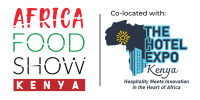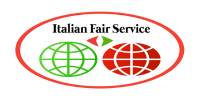
Launched last week in Kwale County, the 5-year project will support rural communities’ transition from mine-dependency to an agriculture-based economy.
The project, dubbed Mradi wa Kuimarisha Kilimo-Biashara Kwale (MKUKI-Kwale), translating to Kwale Agribusiness Strengthening Project, will develop a model for market-driven, collaborative value chains incorporating collective farming and circular agriculture to create sustainable and ethical production systems.
Funded through the ACIAR Agribusiness Research Program for A$3.65 million, the project is led by Business for Development in close collaboration with Kwale County Government, Kenya Agricultural and Livestock Research Institute, PAVI farmers’ cooperative and Australian companies, Base Titanium Ltd and Cotton On, Australia’s largest global retailer.
Speaking at the project’s launch, Australian High Commissioner to Kenya, H.E. Mr Luke Williams said the investment would benefit hundreds of farmers and contribute to broader regional food security.
‘The Australian Government stands with Kenya, and other partners in the region, working towards addressing the region’s food security crisis. The MKUKI-Kwale project will help guarantee food security through the expansion of food production and supply, improving food affordability and support value addition in the value chain.
‘Through ACIAR, Australia has been working with partners in Africa for more than 30 years supporting projects that mobilise this expertise to improve food, nutrition, water, and health security of rural communities,’ added Mr Williams.
Three-quarters of Kenya’s population lives in rural areas and rely on farming to support livelihoods. Smallholder farmers are critical to Kenya’s food security, contributing 63% towards national food production. The project will be working with the community at the smallholder farmer level and exploring how larger blocks of land could be managed collectively in a culturally appropriate way, building sustainable community capacity.
Project leader Ms Deborah Doan from Business for Development said the new research would support the Kwale community social system’s transition from relying on mining to enabling an agriculture-based economy while being more socially inclusive.
‘The MKUKI-Kwale project will incorporate ground-breaking research spanning social sciences, value chains and biophysical research to develop evidence-based tools and learnings. Key innovations include formal learning pathways within cooperatives, research on effective farming communities and audio-based farmer training.’
Youth development is also a key focus for the research team, who will explore opportunities to engage with Kwale’s youth in research activities to encourage agriculture as a viable career path.
Owner of the mining site, Base Titanium Ltd, is a key partner in project and will be returning a 4,600-acre block of land back to the community in 2024. An area of this larger block is being considered for agribusiness, with a local farming cooperative to be custodian of the land on behalf of the smallholder farming community.
ACIAR Special Advisor, Commercial Adoption and Engagement, Mr Howard Hall, said the new agribusiness initiative was working closely with Australia’s largest global retailer, Cotton On, from the offset to ensure long-term success.
‘A key focus for ACIAR is partnering with the private sector to establish commercial adoption pathways that deliver higher farmer returns. By connecting smallholder communities with companies like the Cotton On Group at the beginning of a new project, we’re ensuring that the food production system being created will be viable long after the project funding ends,’ said Mr Hall.
The Cotton On Group will look to ethically source cotton from Kenya, aligning with the Kenyan Government’s strategy to rejuvenate their moribund cotton processing industry.
‘Creating sustainable production systems isn’t just about the environment; it’s about the entire food production model. If it can’t be viably maintained, then it’s not sustainable,’ added Mr Hall.
The new project is scheduled to run until March 2028.

